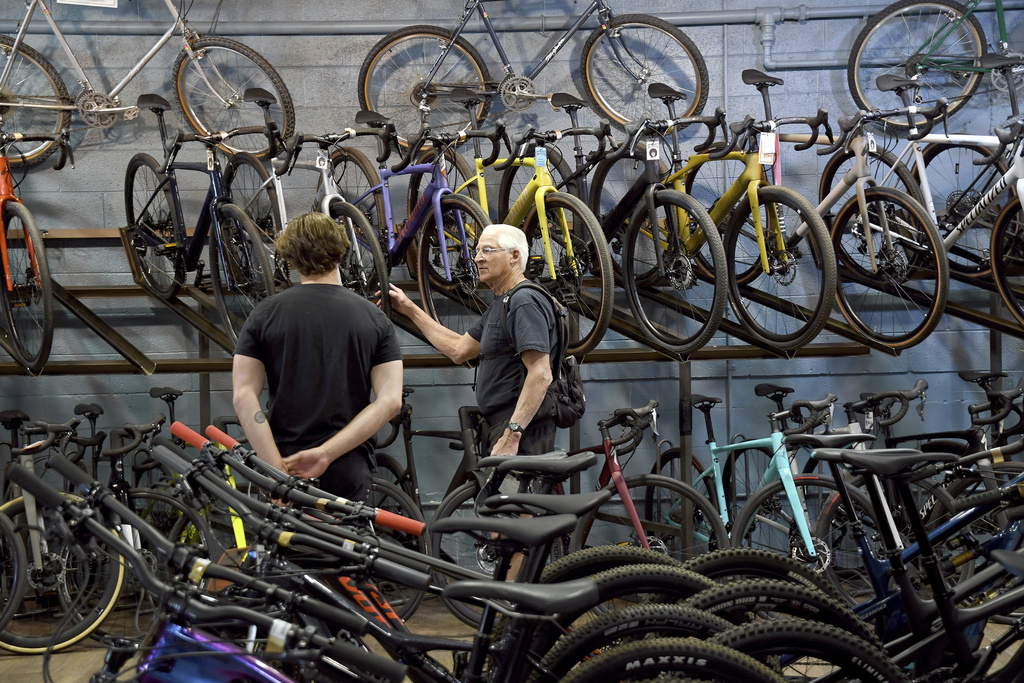American consumers felt more confident in July as expectations over the near-term future rebounded. However, in a reversal of recent trends, feelings about current conditions weakened.
The Conference Board, a business research group, said Tuesday that its consumer confidence index rose to 100.3 in July from a downwardly revised 97.8 in June.
The index measures both Americans’ assessment of current economic conditions and their outlook for the next six months.
The measure of Americans’ short-term expectations for income, business and the job market rose in July to 78.2 from 72.8 in June. A reading under 80 can signal a potential recession in the near future.
Consumers’ view of current conditions dipped in July to 133.6, from 135.3 in June.
Elevated prices for food and groceries remain the main driver of consumers’ view of the U.S. economy. Though inflation has come down considerably since the Federal Reserve started boosting interest rates in March of 2022, price increases remain well above pre-pandemic levels.
“Even though consumers remain relatively positive about the labor market, they still appear to be concerned about elevated prices and interest rates, and uncertainty about the future; things that may not improve until next year,” said Dana Peterson, The Conference Board’s chief economist.
The number of respondents who said they planned to purchase a home fell to a 12-year low as elevated interest rates, sky-high home prices and a lack of supply continue to discourage home shoppers.
The number of consumers predicting a recession inched up this month but is still well of its 2023 peak, the board said.
Consumer spending accounts for nearly 70% of U.S. economic activity and is closely watched by economists for signs how the American consumer is feeling.
While the U.S. economy and labor market remain broadly healthy, some weakness has surfaced, spurred by higher interest rates.
The unemployment rate ticked up to 4.1% in June — the highest rate since November 2021 — even as America’s employers added another 206,000 jobs last month.
Also Tuesday, the government reported that postings for U.S. job openings fell slightly in June. There were 8.18 million job vacancies in June, still a strong number, but down from 8.23 million in May.
The nation’s economy accelerated in the second quarter at a strong 2.8% annual pace, but that comes after growth of just 1.4% in the January-March quarter.
This year’s economic slowdown reflects the much higher borrowing rates for home and auto loans, credit cards and many business loans resulting from the Fed’s aggressive series of interest rate hikes.
The Fed wraps up its current two-day meeting on Wednesday, but most analysts expect no change to interest rates. Most are forecasting the first rate cut in more than four years to come at its next meeting in September.
(AP)











